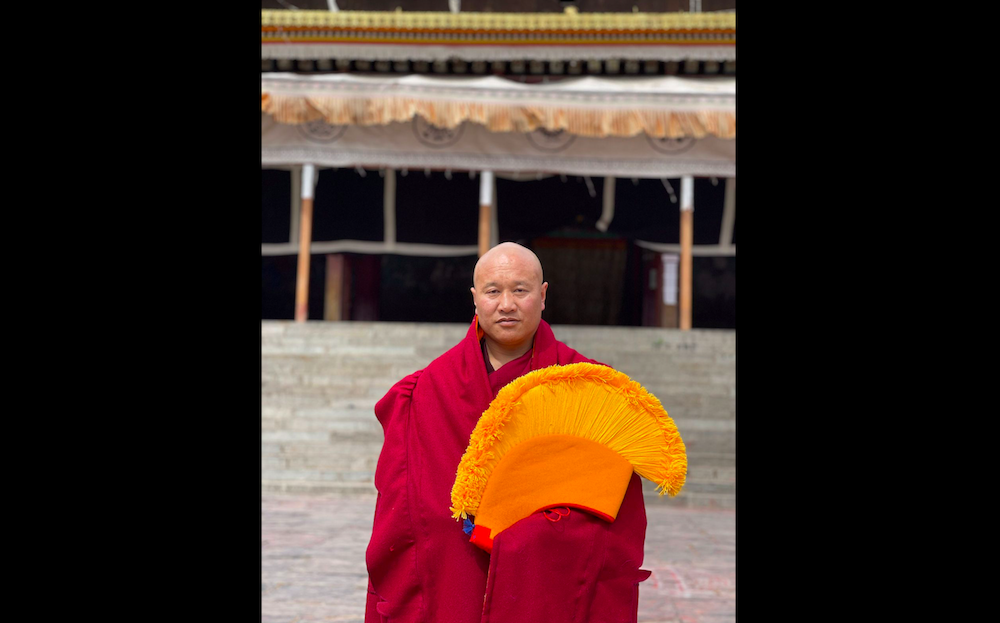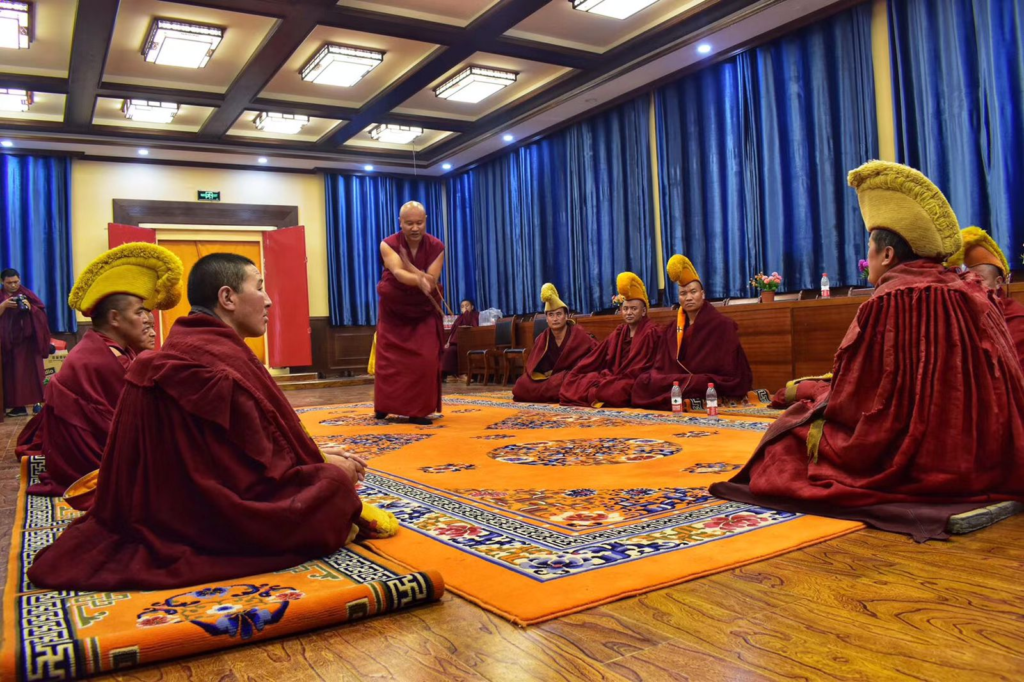Geshe Rachung Gendun, a highly respected Tibetan Buddhist scholar from Kirti Monastery in Ngaba County, has been released from a Chinese prison after serving a three-and-a-half-year sentence. His imprisonment and the conditions surrounding it highlight the ongoing challenges faced by Tibetan monks and scholars under Chinese rule.
The Arrest and Imprisonment of Geshe Rachung Gendun
On April 1, 2021, Chinese authorities arrested Geshe Rachung Gendun in a late-night operation at his monastery quarters. The charges against him stemmed from alleged monetary offerings he sent to His Holiness the Dalai Lama and Kirti Rinpoche, the exiled abbot of Kirti Monastery.
Following his arrest, Gendun’s family was left in the dark about his whereabouts for months, as the authorities denied them any information or visitation rights.
During his imprisonment, Gendun’s health deteriorated significantly, raising concerns about the treatment of Tibetan prisoners in Chinese custody. Reports from exile Tibetan sources suggest that his physical and mental well-being suffered due to harsh conditions, isolation, and lack of adequate medical care.
Read : India’s Land Slowly Slipping 5 to 6 Centimeters Beneath Tibetan Plate Per Year
Tragically, Gendun’s imprisonment coincided with a personal loss. His 85-year-old mother, Norpo, passed away on June 10, 2024, without being able to see her son one last time. Her declining health was compounded by constant government surveillance and harassment, which restricted her access to necessary medical care.
A History of Resistance and Struggles
Geshe Rachung Gendun’s recent imprisonment is not his first encounter with Chinese authorities. His activism dates back to 1998 when he was detained for participating in protests against the Chinese government’s “Patriotic Education Campaign” at Kirti Monastery.
Read : Leshan Giant Buddha: Exploring China’s Colossal Cultural Marvel
This campaign aimed to tighten control over religious practices and included measures such as expelling monks under the age of 18, mandating identification cards, reducing the monastery’s population, and banning the display of photographs of the Dalai Lama.

These restrictions were part of a broader strategy to suppress Tibetan culture and religious identity. Gendun’s defiance during this period marked him as a target for authorities, leading to years of surveillance and persecution.
Adding to his family’s hardships, Gendun’s uncle, Taphun, died by self-immolation on March 27, 2022, outside the police station monitoring Kirti Monastery. This act of protest against Chinese oppression brought international attention to the plight of Tibetans but also intensified the government’s scrutiny of the Gendun family.
A Scholar’s Dedication Amid Adversity
Despite the challenges, Geshe Rachung Gendun remained a committed scholar. Before his 2021 arrest, he was on the path to attaining the prestigious Geshe degree, the highest academic title in Tibetan Buddhism.
This achievement required rigorous study of the ‘Five Great Canonical Texts,’ which include complex philosophical works such as the Abhisamayālaṅkāra (Ornament of Clear Realization) and the Madhyamakāvatāra (Introduction to the Middle Way).
Gendun’s dedication extended beyond academic pursuits. He participated in the demanding Geshe Kachu-pa debate tours across various Kirti monasteries, showcasing his mastery of Tibetan Buddhist philosophy.
His scholarly work reflected not only intellectual brilliance but also a deep commitment to preserving Tibetan Buddhist traditions under challenging circumstances.

His release on November 16, 2024, has been met with relief and cautious optimism within the Tibetan community. However, the toll of his imprisonment on his health and the loss of his mother during his incarceration underscore the immense sacrifices he and his family have endured.
The story of Geshe Rachung Gendun highlights the resilience of Tibetan Buddhist scholars in the face of persecution. His unwavering dedication to his faith and scholarship, despite years of imprisonment and harassment, is a testament to the enduring spirit of the Tibetan people.
As he begins his journey of recovery, his experiences serve as a poignant reminder of the ongoing struggles for religious and cultural freedom in Tibet.

